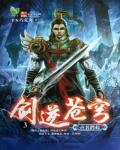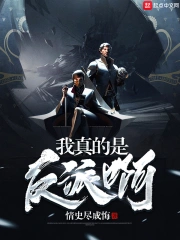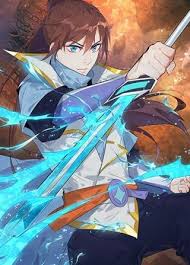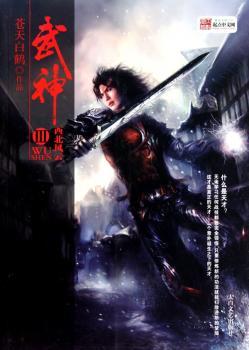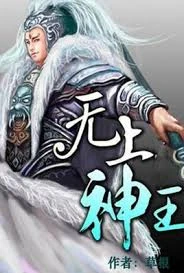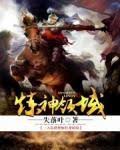The Story in 3 Sentences
A young boy named Xuan Tian, heir to a powerful clan, is forced into hiding under his mother’s surname Huang Tian after a brutal betrayal leaves his family shattered and his own cultivation prospects ruined.
His destiny shifts when a mysterious sword spirit enters his body, healing his crippling injuries and unlocking an unprecedented path of sword cultivation, transforming him from a broken outcast into a force of vengeance.
He ascends through the brutal cultivation world, his sword defying the heavens themselves, to confront the enemies who destroyed his past and forge a future where his family’s honor is restored and his power stands supreme.
Why It Stands Out
1. The Unbreakable Blade of Vengeance
This novel delivers a pure, unadulterated xianxia revenge fantasy. The protagonist’s journey from utter despair, his body broken and future stolen, to becoming an apex predator of the martial world is executed with relentless focus. Every training breakthrough, every defeated foe, every recovered relic, serves the singular, burning purpose of retribution. It’s a cathartic power trip built on a foundation of genuine loss, making every victory feel earned and deeply satisfying for readers who crave that ultimate payoff.
2. Sword Cultivation Perfected
While many novels feature swordsmen, “The Supreme Sword” makes the sword the absolute core of its world and its protagonist’s identity. It’s not just a weapon; it’s a philosophy, a path to enlightenment, and the source of all power. The narrative dives deep into sword techniques, formations, and the spiritual connection between wielder and blade, offering a level of detail and reverence for the art that resonates with fans of the genre. The concept of the sword spirit as a catalyst elevates this beyond mere physical training into a mystical symbiosis.
3. Foundational Xianxia Tropes, Masterfully Executed
It doesn’t reinvent the wheel, but it polishes it to a blinding sheen. You get the crippled genius, the hidden cheat item (the sword spirit), the persecuted family, the sect politics, and the slow, grinding climb to the top. EK Chocolate deploys these familiar elements with confidence and pacing that keeps the pages turning. For readers seeking a classic cultivation story done right, with a clear goal and a protagonist who embodies the genre’s core tenets of perseverance and power, this novel stands as a quintessential example.
Characters That Leave a Mark
There’s Xuan Hong – he is Xuan Tian’s father, a once-formidable swordsman whose life was shattered by betrayal, now driven by a quiet, enduring resolve to see his son succeed where he was forced to fail, his presence a constant reminder of the stakes.
You’ll meet Huang Yuancheng, who is Xuan Tian’s maternal grandfather, a patriarch whose own power was crippled defending his grandson, his diminished state a symbol of the family’s sacrifice and a source of unwavering, if physically limited, support and wisdom.
And Huang Yue? They’re the one who is Xuan Tian’s mother, her role defined by the desperate act of fleeing with her child and husband, her strength lying in her resilience and the fierce, protective love that kept the family unit alive against all odds.
The Flaws Fans Debate
The plot can feel formulaic and predictable, following the standard revenge-to-godhood arc without many major narrative surprises.
Character development for the supporting cast is often shallow, with many figures serving primarily as plot devices or obstacles for the protagonist rather than fully realized individuals.
The pacing, especially in the middle sections, can become repetitive, focusing heavily on sequential battles and cultivation breakthroughs that may feel like filler to some readers.
Must-Experience Arcs
Ch. 1–50: The Broken Heir – We meet Xuan Tian, living under the name Huang Tian, struggling with his crippled cultivation in the Heavenly Sword Sect. The discovery of the sword spirit in the pond and the subsequent healing of his injuries marks the explosive beginning of his true journey, setting the stage for his quest for vengeance.
Ch. 300–500: Sects and Shadows – Xuan Tian ventures beyond his initial sect, navigating the treacherous politics of the wider cultivation world. He confronts remnants of his enemies, uncovers more about the conspiracy against his family, and begins to build his own reputation and power base, transitioning from a student to a rising force.
Ch. 1000–1146: Heaven-Defying Ascension – In the final chapters, Xuan Tian reaches the pinnacle of his power. He confronts the masterminds behind his family’s downfall in epic, world-shaking battles. His sword, now a symbol of his defiance, clashes with the heavens themselves as he secures his vengeance and cements his legacy as the Supreme Sword.
Killer Quotes
“If there is no path for me in this world, then I will use the sword in my hand to carve out a path!”
“The path of sword training first goes from simple to complicated, and then from complicated back to simple. Only then can one be considered to have mastered it.”
Cultural Impact
It has cultivated a dedicated, if niche, fanbase on platforms like NovelUpdates, where readers consistently praise its satisfying revenge plot and classic xianxia feel.
The novel is frequently recommended in forums for readers seeking a straightforward, power-fantasy cultivation story without excessive complexity or romance subplots.
Its enduring presence, despite an older and incomplete official translation, speaks to its reputation as a solid, foundational work within the xianxia genre.
Final Verdict
Start Here If You Want:
A cathartic, no-nonsense revenge story where the underdog rises to become an unstoppable force.
The pure, unadulterated satisfaction of classic xianxia tropes—cultivation, sects, and power progression—done well.
A protagonist whose singular focus on vengeance and family honor provides a clear and compelling narrative drive.
Study If You Love:
Analyzing the archetypal “crippled genius” trope and its execution in popular webnovels.
The thematic exploration of swordsmanship as a path to power and enlightenment in Chinese fantasy.
The structure and pacing of long-form webnovels that prioritize consistent power progression over complex character studies.
Avoid If You Prefer:
Innovative, non-linear plots that subvert genre expectations.
Deep, multi-faceted character development for the entire cast, not just the protagonist.
Stories that avoid repetitive training and battle sequences in favor of political intrigue or philosophical depth.
